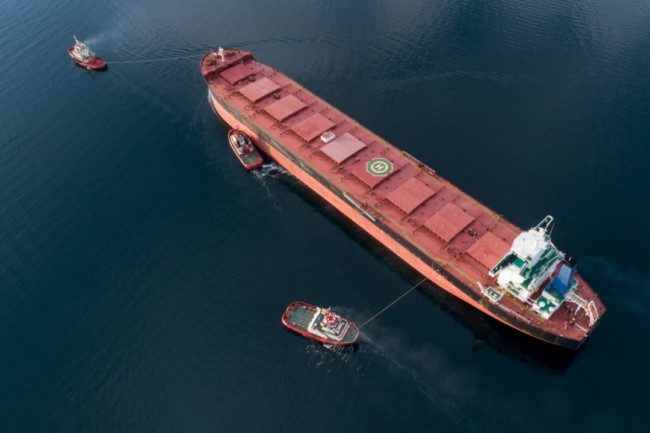WASHINGTON – The Ocean Shipping Reform Act of 2022 proposed by the US Senate is increasingly gaining support from stakeholders, including the meat industry.
The House of Representatives passed similar legislation in December 2021. Senators John Thune (R-SD) and Amy Klobuchar (D-Minn.) headed this version of the bill, which was designed to update federal regulation in global shipping. It also would give the Federal Maritime Commission (FMC) greater rulemaking authority to regulate harmful practices by carriers.
“The improvements made by this bill would provide the FMC with the tools necessary to address unreasonable practices by ocean carriers, holding them accountable for their bad-faith efforts that disenfranchise American producers, including those throughout South Dakota, who feed the world,” Thune said. “Especially with record inflation in prices of goods, this legislation would also benefit consumers by promoting the fluidity and efficiency of the supply chain.”
The legislation would include prohibiting ocean carriers from unreasonably declining opportunities for US exports, as determined by the FMC in a new required rulemaking. It will also promote transparency by requiring common ocean carriers to report to the FMC each calendar quarter on total import/export tonnage and 20-foot equivalent units (loaded/empty) per vessel that makes port in the United States.
The bill would also authorize the FMC to initiate investigations of ocean common carrier’s business practices and apply enforcement measures, as appropriate.
Lastly, the bill proposes the establishment of a new authority for the FMC to register shipping exchanges to improve the negotiation of service contracts.
Thune and Klobuchar noted backing from several trade and farming organizations for this legislation.
In a recent statement about how the bill will help meat producers in the United States, the North American Meat Institute (NAMI) expressed support for the bill.
“The problems at our ports include delays of shipments of American made goods to overseas trading partners due to the unreasonable practices of foreign-owned ocean carriers,” said Julie Anna Potts, president and chief executive officer of NAMI. “These delays are a huge cost to meat and poultry companies as their perishable products await transport.”


